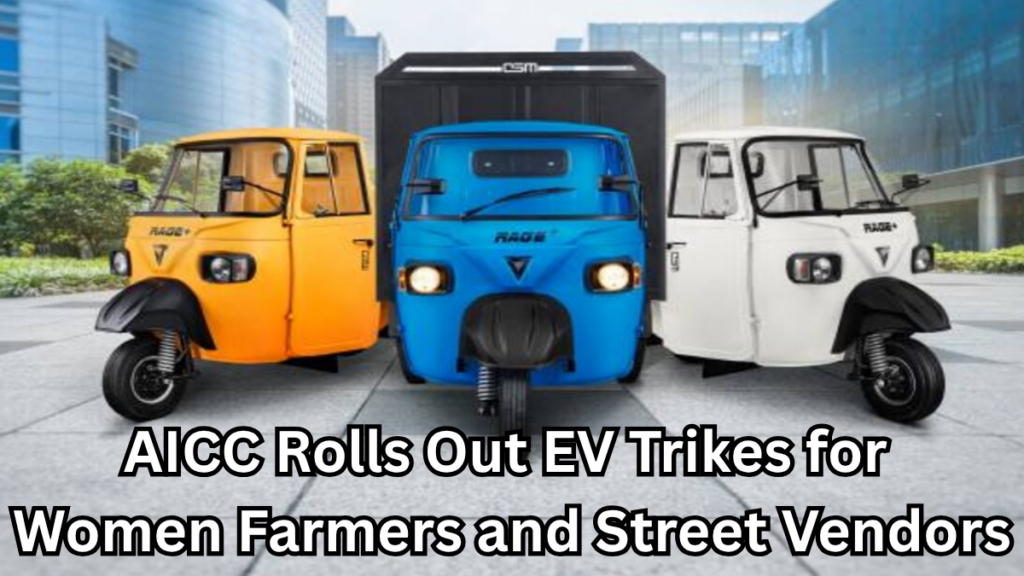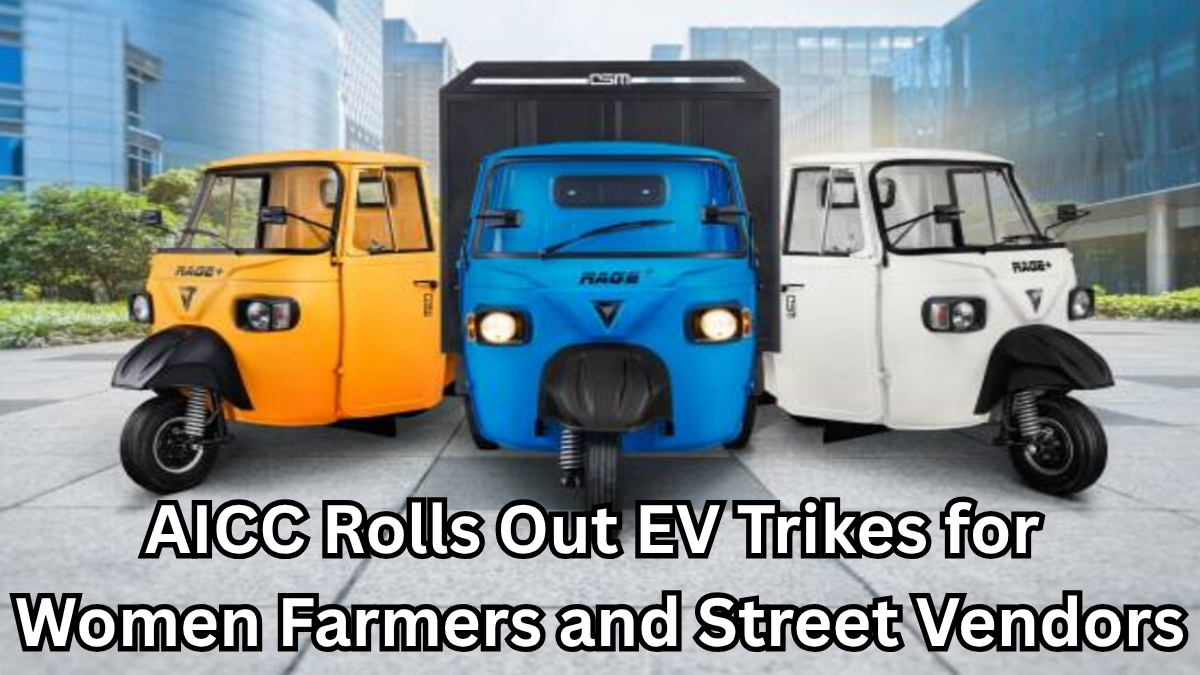In a powerful push for sustainable rural development and gender equity, the African Institute for Capacity and Community Development (AICC) has launched an innovative program delivering EV trikes to women farmers and street vendors across Tanzania and Malawi. This initiative reflects a strong commitment to inclusive agri mobility, especially for underserved communities in agriculture and informal trade.

Empowering Women in Agriculture and Street Vending
For years, women in rural regions have faced transportation barriers—often walking long distances or relying on costly third-party services to deliver produce or goods. These trike carts for women vendors are now changing the game.
Key benefits of the initiative:
-
Offers affordable and reliable mobility
-
Boosts daily productivity and profit margins
-
Enhances access to farm-to-market routes
-
Supports inclusive agri mobility and economic independence
Highlights of the EV Trike Design
The electric trikes are designed to be practical, durable, and user-friendly for women operating in rural and semi-urban settings.
EV Trike Specifications
| Feature | Details |
|---|---|
| Type | Electric tricycles |
| Target Users | Women farmers and street vendors |
| Top Speed | 40 km/h |
| Battery Range | 80–100 km per full charge |
| Charging Time | 4–6 hours |
| Load Capacity | 300–500 kg |
| Terrain Compatibility | Optimized for rural and market routes |
| Purpose | Agri produce delivery, vending, short-distance logistics |
These trike carts for women vendors ensure balance and safety while carrying goods, making them a sustainable transport alternative.
Building a More Inclusive Mobility Ecosystem
AICC’s approach goes beyond just distributing vehicles. It’s about building a long-term framework for inclusive agri mobility.
Strategic impact:
-
Women entrepreneurs gain better control over logistics and profits
-
Local economies see increased produce turnover at rural markets
-
Cleaner, electric vehicles reduce carbon emissions in remote areas
Community-Based Rollout and Training
AICC has already launched the trikes in select communities with a structured rollout plan.
Rollout details:
-
Over 300 EV trikes deployed in Malawi and Tanzania
-
Hands-on training programs conducted for women users
-
Local service centers established for repair and maintenance
-
Ongoing data collection to improve future designs and routes
FAQs
What type of women can apply for the EV trikes?
The program is open to women farmers, street food vendors, and micro-traders in rural areas, with registration facilitated by AICC and community development groups.
How are the trike carts maintained?
Each distribution hub includes access to a local service workshop. Women are also trained in basic troubleshooting and maintenance.
Why is this called an inclusive agri mobility initiative?
Because it targets a group often overlooked in transport planning—rural women—and integrates them into a modern mobility system that supports agricultural growth.
Will the program expand beyond Tanzania and Malawi?
Yes, AICC has announced plans to replicate the initiative in Kenya, Uganda, and Zambia by late 2025.
Conclusion
With this EV trike initiative, AICC is driving a much-needed shift toward gender-sensitive infrastructure and clean transport. The use of trike carts for women vendors is a clear step forward in fostering inclusive agri mobility, offering rural women both dignity and opportunity on wheels.
Click here to learn more
Sachin is a dedicated writer specializing in education, career, and recruitment topics, delivering clear and actionable insights to empower readers.
